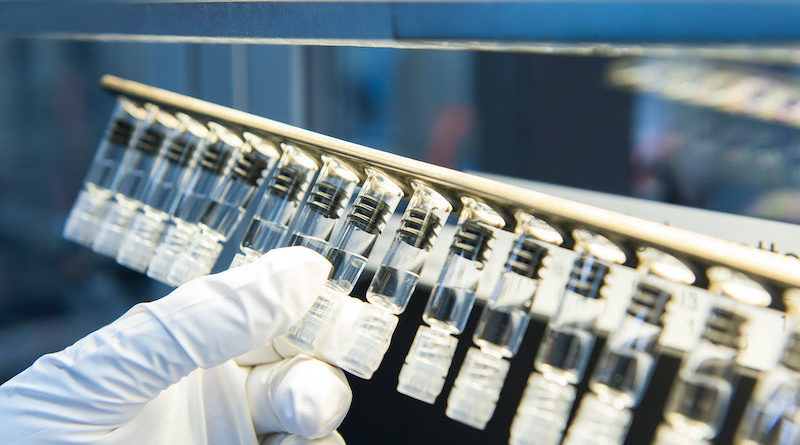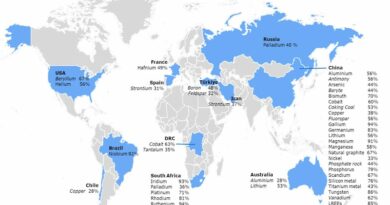
A new public-private collaborative approach for stronger European pandemic preparedness
In Europe’s efforts to tackle COVID-19, the public health community came together to share its expertise and resources at a pace never seen before. While we collectively responded to the immediate crisis, we also began to lay foundations for what could be a new public health model for European pandemic preparedness and response in the future.
These new levels of public-private collaboration can become the path forward for bringing breakthrough science into standard medical practice in record time and at massive scale.
By acting on key lessons learned in the last 18 months, including some of those outlined here, Europe can become the world leader in healthcare innovation and public health preparedness as a single and strong European Health Union.
A. Greater public-private collaboration to equip Europe for future health emergencies
COVID-19 brought the importance of the political power of the EU to the forefront of public attention. The European Commission acted on behalf of Member States to secure the block’s supplies of COVID-19 vaccines for all EU residents. And most recently, Europe’s leadership has announced the ambition to create a dedicated public-health emergency preparedness authority to better equip the continent and permit EU leadership of global health solutions.
The HERA Incubator
The future Health Emergency Preparedness and Response Authority (HERA), or the “European BARDA” will allow our region to be in a better position to compete for resources and innovative solutions when it comes to pandemic responses.
Initial work on the HERA incubator underway is encouraging, bringing together science, industry and public authorities to address ongoing public health needs out of the current crisis.
This includes plans to invest in European capacity for the development and manufacturing of vaccines adapted to COVID-19 variants while working with scientific experts to look at the course of COVID-19 epidemiology over the long term. This is just the beginning.
The benefits of such a centralized and organized body designed specifically to the pandemic preparedness purpose could also extend beyond the continents’ borders, by increasing the region’s ability to contribute to answering global health needs as well as its own.
End-to-End collaboration
To unleash the full potential of HERA, Europe can enable new models of long-term, end-to-end collaboration between public and private sectors for fast, effective and equitable crisis response. Increased collaboration could cover all the stages of medicinal products’ lifecycles, ranging from advanced stage research and clinical development to product manufacturing and procurement.
HERA could also play a key role in providing financial mechanisms that enable faster drug development and approval. These could include enhancing Europe’s ability to pool resources and provide at-scale funding possibilities for the development and manufacturing of new vaccines or treatments that no Member State could achieve alone.
EU countries’ preparedness and response plans
Complementary to HERA, the EU is best positioned to establish a Union-wide framework for national health crisis and pandemic planning. Such plans could be established by Member States’ governments and include comprehensive dynamics of pandemic preparedness including templates for diagnosis, vaccination and/or treatment deployment, re-allocation of healthcare infrastructures, management of supplies and logistics, and sourcing and training of more healthcare professionals.
B. Paving the way to a European Health Union
Beyond preparing for the next pandemic, I believe the broader EU ecosystem can evolve to foster faster, more seamless, equitable and therefore robust public health care for all Europeans.
Fostering EU strategic autonomy for improved health competitiveness
The COVID19 pandemic has highlighted Health as a strategic sector. Strategic dependencies have been identified, as Europe lags other regions in bringing innovations and medical measures to the populations. There is absolutely no reason why the European Union could not become a world leader in the creation and delivery of innovative health sciences and technologies. Recent initiatives such as the EU industrial strategy are heading in the right direction, but this will need to be accompanied by short- and long-term steps to achieve an ambitious European Health Union.
In the short term, we can seek to foster EU-based industrial capabilities on key molecules and bioproduction, investments as valuable as the continent’s green and digital transformations. This will require sometimes strategic decisions at both the Commission and country levels.
In the long run, we’ll need to step-up our process for innovation in strategic fields such as mRNA technologies, gene cell therapies, and personalized medicines to embrace change in the healthcare paradigm, one that is led by smart, powerful new technologies.
Setting-up European data systems and surveillance
The current crisis has revealed the power of data and the urgent need to finally push forward a cutting-edge health data ecosystem. Data is clearly an essential asset in the improved management of public health both generally and in a crisis context. We can note several examples of this, from essential track-and trace digital tools to follow the spread of a virus in a population, to sophisticated real-time epidemiological data sets which scientists develop and share to more quickly understand a new disease.
And indeed, big data powered by artificial intelligence could already today help government decision makers and pharmaceutical companies to predict and anticipate epidemiological changes (i.e. emerging variants), against which they can adapt their solutions.
Extending EU agencies’ mandates
The EU has recently proposed new regulation on Serious Cross-Border Health Threats that could equip countries with greater response mechanisms for future public health crises. We should go further by also reinforcing the role of EU health agencies in this context, namely, the ECDC and EMA.
The COVID-19 pandemic has shown the important role that the ECDC can play in risk assessments, surveillance, analysis of epidemiological information and recommendations for actions to prevent and control communicable diseases. We also saw that dialogue between EU agencies and the pharmaceutical industry was key to getting to initial support for pandemic response shared across Member States, including fast-tracking of essential new medicines and sourcing and supplying more existing medicines in the face of rapid and unexpected shifts in demand.
In conclusion, Europe can further strengthen and formalize its regulatory ecosystem in ways that make it predictable, adaptable, and enabling of globally competitive solutions.
On the journey ahead, we need to continue the dialogue on pandemic preparedness, starting with HERA and continuing with broader end-to-end collaboration across EC-level government, national governments and industrial partners. These are the foundations on which a great, resilient, and innovation-driven European Health Union can be built in the future, one that best protects the lives of the people of Europe and beyond.
Thomas Triomphe is Executive Vice President, Sanofi Pasteur, the vaccines division of Sanofi.
Since the start of the fight against COVID-19, Sanofi has been engaged in a partnership effort in the research of two vaccine candidates. The first vaccine candidate, developed with GlaxoSmithKline (GSK), is an adjuvanted recombinant protein vaccine and the second is an mRNA candidate vaccine developed in collaboration with Translate Bio.
While the company’s utmost priority remains to advance these two COVID-19 vaccine programs, Sanofi has also stepped forward to support increased supply of three other companies’ approved vaccines to help bring and keep the pandemic under control as quickly as possible.




